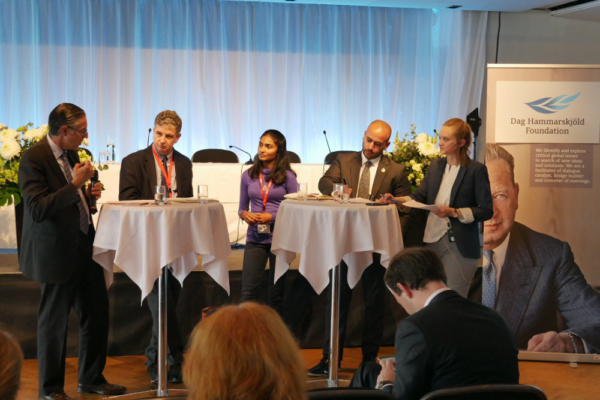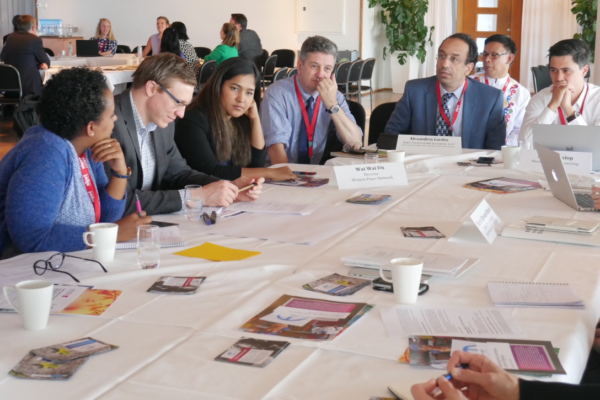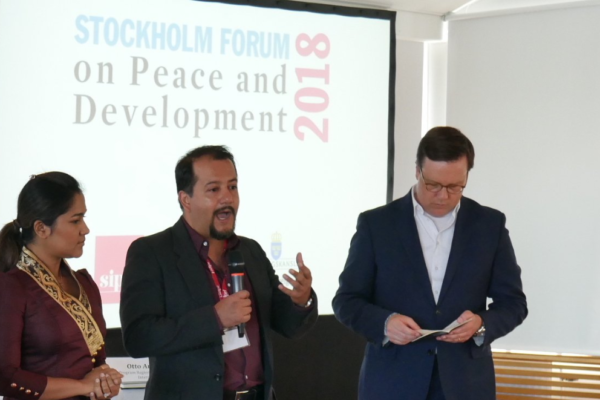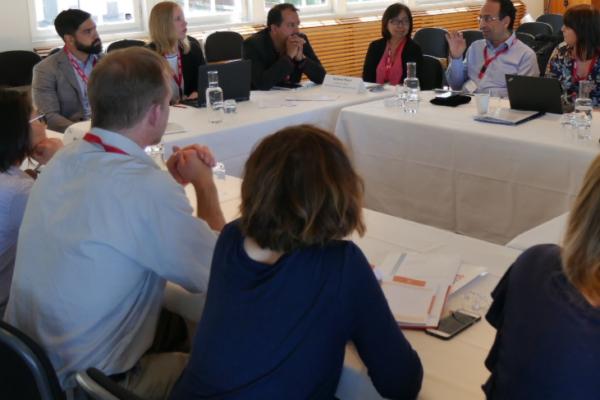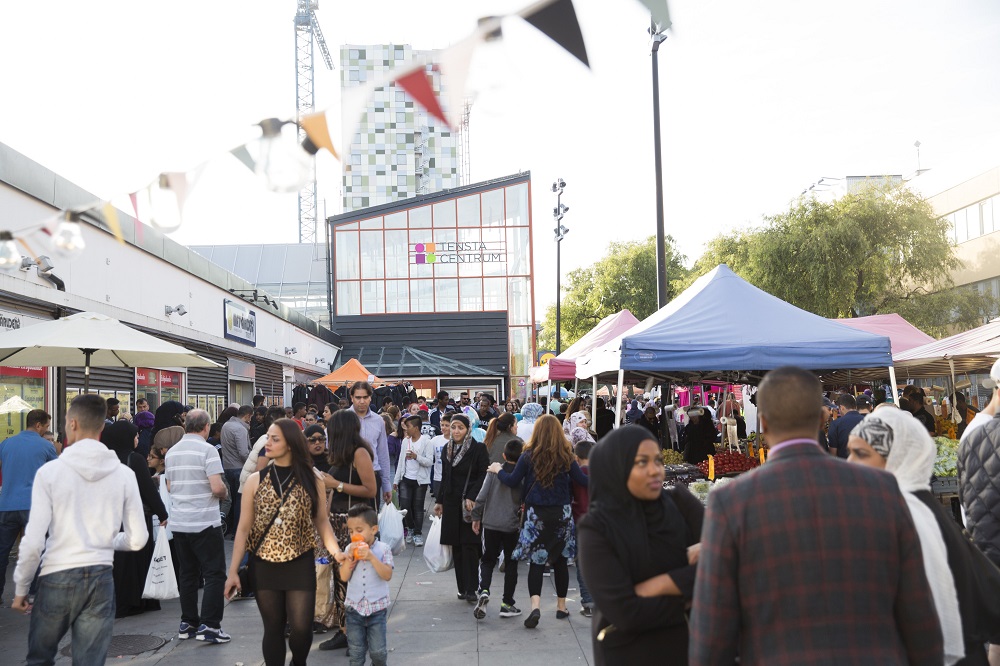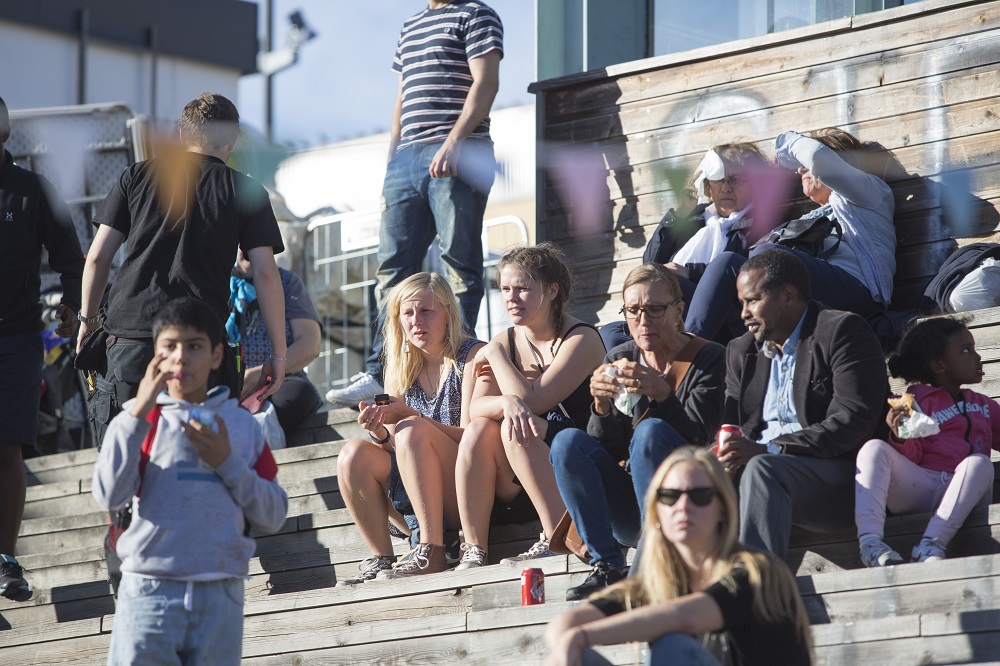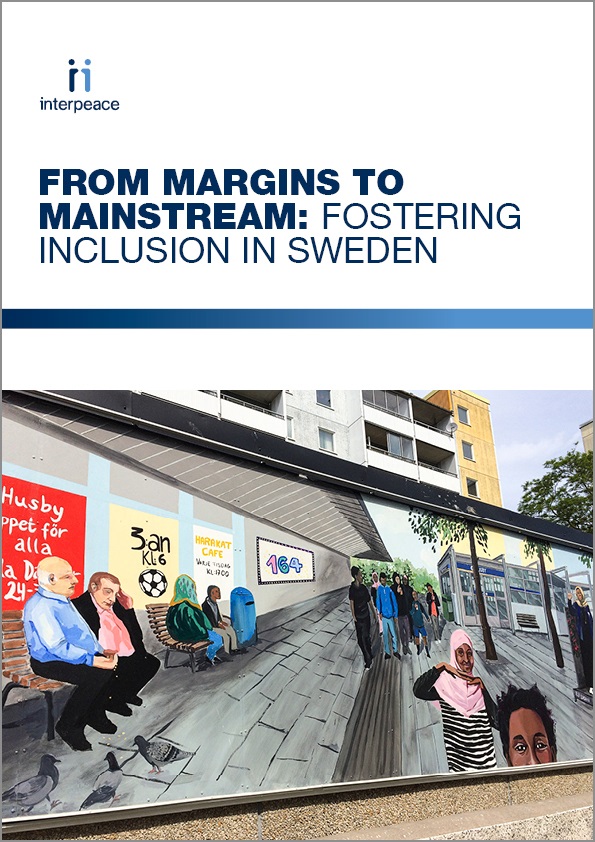"Youth participation is a right, and resolution 2250 is a tool for also achieving this in Sweden." - Rosaline Marbinah, Chairman of the Foreign Policy Union in Sweden and Vice-Chairman of the National Council for Swedish Youth Organizations (LSU)
Just over a year ago, the UN Security Council adopted Resolution 2250, the first ever resolution on the topic of youth, peace and security. Interpeace’s Project leader in Suède, Tomas Amanuel, participated in a panel discussion during the Almedalen political week in Sweden on what this resolution means and how the work of implementing it is coming along. The conference was organized by the Foreign Policy Association in collaboration with the Folke Bernadotte Academy (FBA), the agency for Peace, Security and Development.
The panel discussion was moderated by Max Landergård and participants included: Ulrika Modéer, State Secretary to Isabella Lövin, Minister for International Development Cooperation; Rosaline Marbinah, Chairman of the Foreign Policy Union in Sweden and Vice-Chairman of the National Council for Swedish Youth Organizations (LSU); Chris Coulter, Head of the conflict prevention Program at FBA, and; Tomas Amanuel, Project leader for Interpeace.
Youth's participation - an important aspect of achieving resolution 2250
Ulrika Modéer began the conversation by pointing out that the number of conflicts in the world is increasing, and at the same time, half of the world's population is under the age of 24. Therefore, it is not only reasonable, but necessary to include young people in decisions that will greatly affect the future.
UN resolution 2250 aims to achieve this and strengthen young people's participation and influence on issues of peace and security worldwide. But what are the challenges and how can we create the conditions for success?
A shift in youth engagement
In Sweden, young people often engage in associations that are focused on single political issues or associations in sports and culture. Today, it is more likely that young people will be found in sports associations or music studios than in political parties or movements. It is a global trend that while more and more young people engage and organize themselves, interest and trust in traditional politics seem to decrease. So how to increase youth involvement in politics when many young people are becoming less and less interested in politics as we know it?
The panelists agreed about the importance of local ownership to strengthen the desire of young people to participate in democratic processes. Interpeace's work with young people in socio-economically vulnerable areas in Sweden has been possible through close collaborations with local organizations and actors who are active and anchored in the specific areas where we work. Through these key people, it is possible to gain an understanding of the dynamics of the area, about what works well and what needs to change and how youth perceive the changes taking place.
The new ways in which youth engage also create a need to develop new forms to support and mechanisms for funding these movements. One way to win back young people's trust can be to review the various barriers that exist at a local level. Most often, there are high demands for formal organizational structures in order to receive financial support, demands which are often difficult for youth to live up to. The resolution has already helped to raise awareness of the need to review these barriers and find new ways to support young people's participation on their own terms.
"How do we finance young people's involvement in less formal ways? We must dare to take more risks! " - Chris Coulter, Head of the conflict prevention Program at FBA
When young people themselves define the problems they face and come up with ideas for solutions, their commitment increases. Moreover, their involvement helps provide long-term legitimacy and sustainability to the solutions that are developed. Including young people in decision-making processes should therefore be seen as a success factor that contributes to more effective and sustainable results.
"Youth's ability to organize is one of the most important issues of the resolution." - Tomas Amanuel, Project leader for Interpeace Sweden
